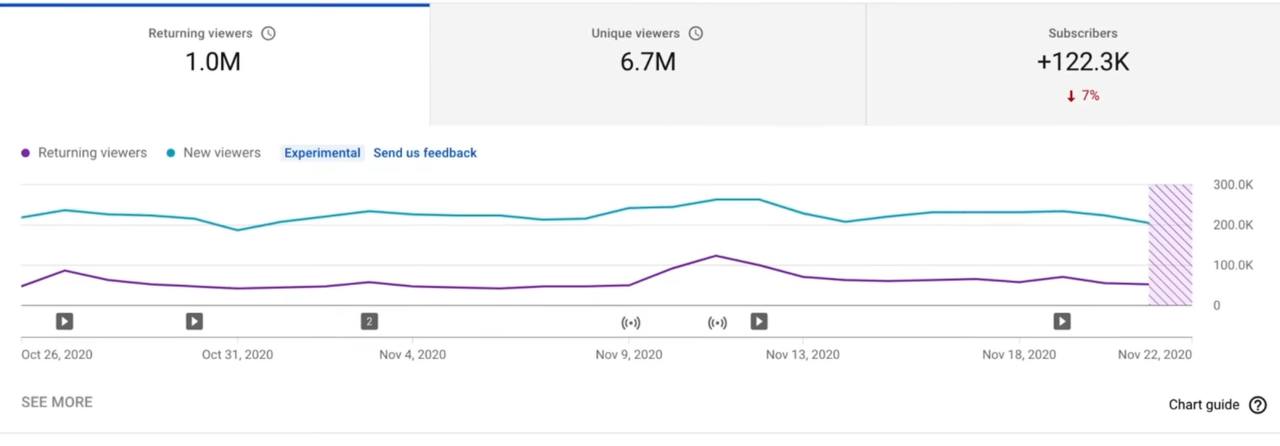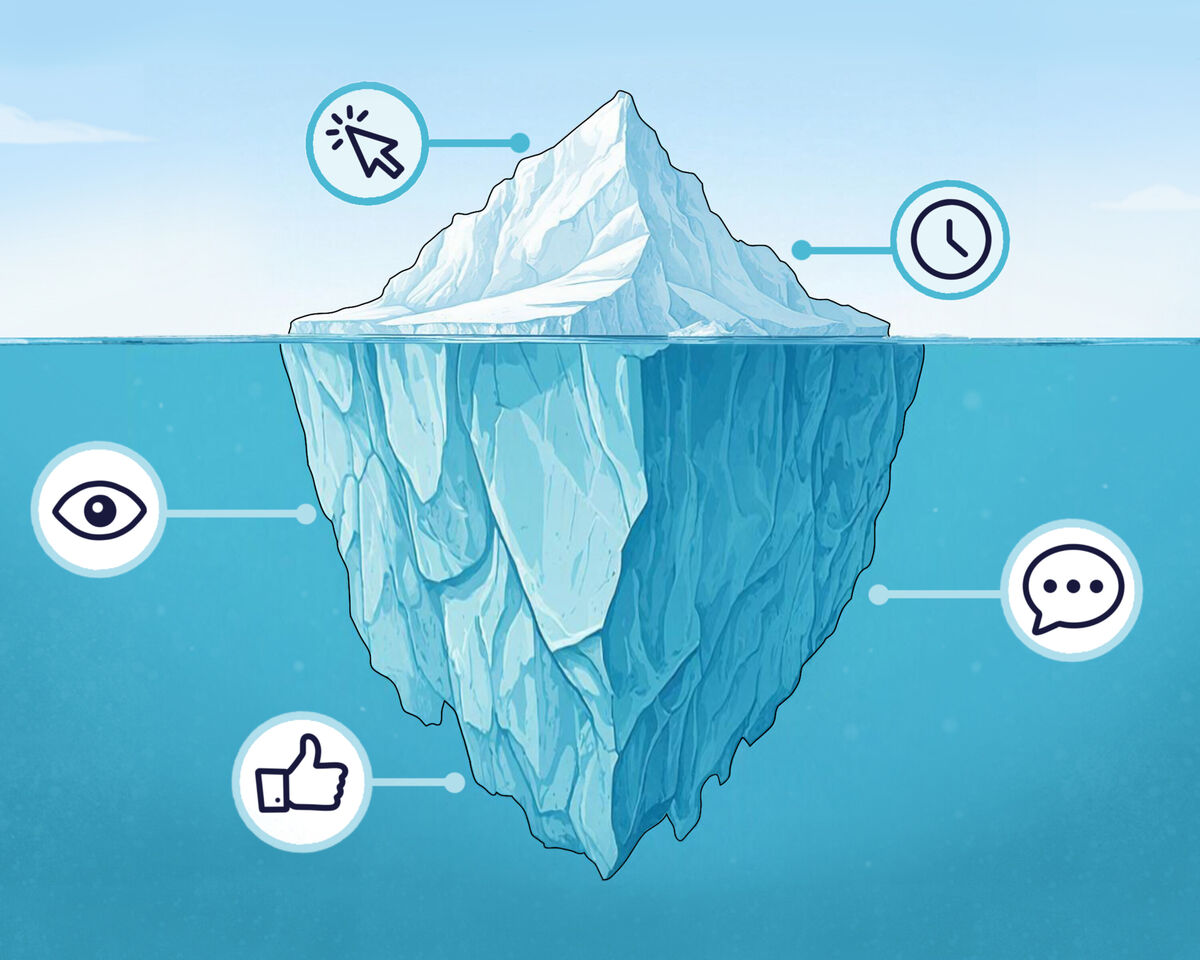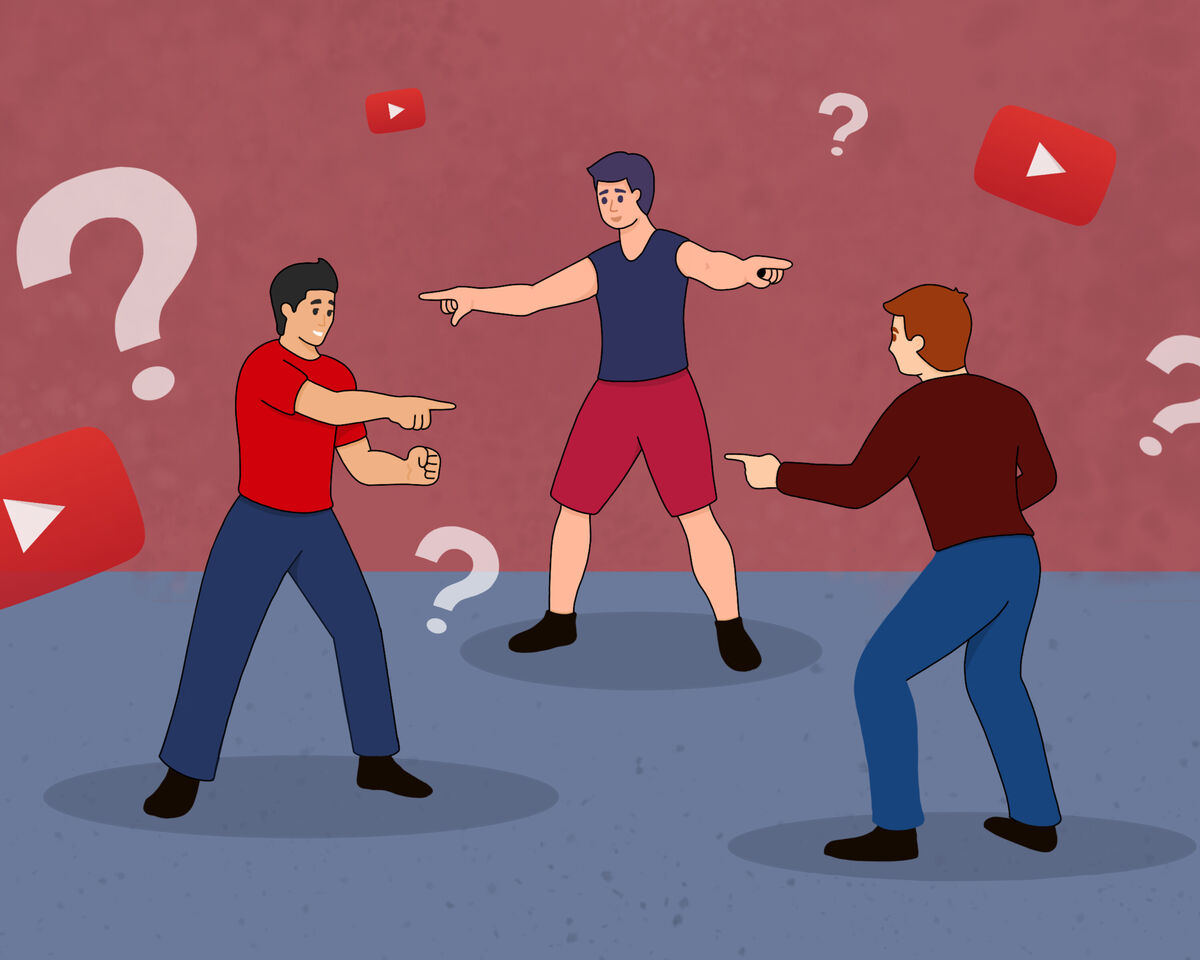Why Most YouTubers Fail: Avoid These Common Mistakes!

It's tough to be a YouTuber these days. Whatever you do, it seems wrong or off.
You try to follow everything that popular content creators preach: make interesting videos, monitor your metrics, don't look at others, just keep creating, and so on. However, few people break down what's really behind these calls to action. And people tend to interpret everything in their own way.
So we end up with a huge number of creators who seem to be doing everything right, but in reality, they're only hurting themselves.
YouTube can be quite demanding, pushing creators to make trendy videos and maximize engagement through likes, comments, and subscriptions. It's easy to lose sight of the original goal that brought you to the platform—whether that's creative expression or sharing your experiences and knowledge. For now, let's focus on that.
With the goal clarified, what about the tasks? Every YouTuber's task is to cater to the viewers' interests, but the approach to doing so is largely dictated by YouTube itself.
"Make interesting videos"
That’s what YouTube tells us.
You might immediately think that “interesting” means popular, trendy, or content that racks up likes and views. While these types of videos are undoubtedly important for your channel, it’s crucial to understand that exclusively chasing trendy topics is a futile endeavor.
Here's an example from my experience working with YouTuber clients: We were approached by Person X, who runs a channel with a solid number of viewers focused on medicine. An experienced medical expert with years of practice, their goal was to help people, debunk medical myths, and provide valuable insights. The channel had been around for a while, garnering good views and plenty of viewer engagement. On the surface, it seemed like a recipe for success.
However, the channel’s main goal was not being realized at all.
Person X started with basic, sexualized content that appealed to a less discerning audience. Don’t get us wrong—educational channels on sensitive topics are necessary and important. But in this case, the channel’s growth relied solely on clickbait titles like “How to Enlarge Certain Body Parts” or “How to Make Certain Processes Last Longer.”
The creator’s goal was admirable, and their expertise equipped them to create genuinely valuable content. But without understanding how to attract the right audience, the channel veered completely off course.
So, let’s emphasize this: interesting content should meet audience demands without compromising the creator’s values.
Now that we’ve sorted this out, let’s revisit the initial idea: YouTube expects high productivity from its creators. How do we balance that with staying true to our core goals?
"Improve your channel metrics"
Here is where creators encounter another misconception.
Of course, YouTube pays attention to likes and views. This activity shows them that you're a creator who interests viewers. Then YouTube gives your channel an additional boost by placing your video into recommendations for the target audience.
But do creators understand the word "metrics" correctly?
Let’s take a look at which analytics data creators really need to focus on to drive growth.
- Audience retention
At the moment, this is the most important indicator that affects the effectiveness of your promotion on YouTube.
The longer you keep a viewer on the platform, the more grateful YouTube will be to you and the more often it will start recommending your content to new viewers. Depending on the overall length of the video, YouTube takes into account either the viewing percentage or the number of minutes viewed to a greater extent.
- New and regular viewers
The way your regular audience engages with your latest video directly impacts how YouTube promotes it to new viewers with similar interests.

The key point to remember is that regular viewers aren’t just your subscribers—they include anyone who has watched your videos at least once within a certain period of time.
- CTR
This is not the most accurate indicator today, but YouTube also relies on it.
We say "not the most accurate" because videos with ten views can have a CTR much higher than 50%, while a video with millions of views might have less than two percent. So this metric is undoubtedly useful, but not always objective.
All analytics data is the internal workings of your channel, which viewers don't see. But it's visible to you and helps analyze the quality of content: where there was a failed topic, where the thumbnail didn't work effectively enough, where you made a mistake with the video title, and so on.
But what about likes and subscribers?
Likes, dislikes, the “share” button, comments - these are only part of the metrics that YouTube evaluates.This can also include, for example, data on how often viewers rewatch a certain moment in a video.
YouTube doesn’t disclose all its factors, but according to the platform, any positive engagement signals from audience activity under your video can boost its performance. This means there’s no need to obsess over likes or focus solely on questions like “How to get X subscribers.” It’s a common trap that many, if not all, beginner creators fall into.
Let’s dive into subscription metrics by examining a few examples.
Imagine you have a large number of subscribers. For example, 50 thousand. But your videos are barely getting 40 views.
What does this say? It says that your channel is completely dead.
Another example is when a creator had a very successful channel, and then decided to change the content direction. They used to produce “let’s play” videos but then switched to gadget reviews. Some loyal viewers may stick around, but the core audience—who came for the gaming content, charisma, and humor—will likely be disappointed. They signed up for gameplay and jokes, not car accessories and smart vacuum cleaners.
As a result, subscriber count has lost its value. Even if you have three hundred thousand subscribers, they may no longer watch your new content, engage with it, or show any interest in your work.
Let’s consider a third example to drive the point home.
You’re running a vlog, and everything is going well—until burnout hits. Or maybe you’ve moved into a new job that takes up your time, or relocated and find yourself disengaged from your online presence. As time passes, your subscribers wait, but with each passing week and month, their enthusiasm fades. New, equally interesting creators step in to fill the gap, and eventually, your channel fades into obscurity.
Then, out of nowhere, you decide to make a comeback. But, like in the second example, the same once-active viewers have largely forgotten about you. Some have changed accounts, others have stopped watching YouTube altogether, and many simply don’t see you in their recommendations anymore.
The once-treasured subscriber count becomes meaningless. That number now represents more inactive or forgotten accounts than dedicated followers ready to wait another ten years for your return.
What do these examples teach us?
They show that the number of subscribers isn’t a true measure of a channel’s success. It’s just a number accumulated through various factors, whether through hard work and quality content or through deceptive tactics like artificial inflation.
When creators fixate on these numbers as the most important indicator, they lose sight of the quality and value of their videos. This leads to a desperate scramble to produce more content, regardless of quality, just to grab attention. Sensationalist, clickbaity videos often become the norm, and the channel lacks a clear theme or direction.
How long can such a creator survive on the platform? Unfortunately, not long.
- Either he won't get the desired subs and will give up
- Or he'll get tired of churning out content as soon as he sees stagnation
- Or he'll kill millions of brain cells searching for the next topic and burn out
You shouldn't upload videos just to quickly collect likes from viewers. Each uploaded video should have a clearly formulated goal.
For example, if you're developing a business or personal brand on YouTube, your goal might be to increase brand awareness or gain more views to expand your audience.
Why is YouTube a long game?
Because achieving quality and solid metrics requires serious effort. You need to focus on selecting the right topics, building audience loyalty, and experimenting with new formats. This approach will help you grow steadily, but more importantly, in the right direction.
What other traps do creators fall into when they put numbers above everything else?
They increase their stress levels. This happens because when faced with an audience that offers unsolicited advice or spews outright hate, creators struggle to discern which comments provide valuable feedback and which are simply noise to be ignored.
Not all creators can focus on growth, while at the same time processing any comments in their head in such a way as to make even better quality content. Instead, they stress out and endlessly scroll through the thought in their head: "I'll do anything, just please don't unsubscribe and like me."
Instead of concentrating on creating meaningful content, these creators often resort to implementing the most absurd ideas just to avoid hate and losing subscribers. We hope you don’t fall into that trap.
Therefore, when you hear the phrase "improve your metrics", concentrate on what will help you grow: retention, CTR, new and regular viewers, and so on.
"Get Popular"
Even if we’ve said this a million times, it’s worth repeating:
If your goal on YouTube is instant fame and popularity, you’re on the wrong platform.
It might sound harsh, but it’s the truth, and it’s important to understand why chasing quick popularity and wealth isn’t what YouTube is about.
Consider this: where do popular artists usually create personal pages? They’re often on Instagram, where they post photos; X (formerly Twitter), where they share thoughts in mini-blogs; or TikTok, where they participate in fun challenges.
Very few jump straight into starting a YouTube channel, especially if they aren’t comfortable sharing significant parts of their personal lives, like vlogs, behind-the-scenes footage, or tutorials, which are common among stars on YouTube.
Even for those who enjoy posting on YouTube, it’s rarely their main priority. The exceptions are often musicians, who have their own dedicated section on the platform because YouTube excels at hosting music videos, dance performances, and other shows.
However, even in these cases, artists themselves aren’t typically managing their YouTube pages; that’s the job of their managers and PR teams.
What conclusion can we draw from this?
- YouTube is not about gaining quick popularity.
- YouTube is not about becoming famous and rich instantly.
- YouTube is about what you can give to the viewer. In return you get currency in the form of views, likes, and money.
However, if you're creating a channel for fun or memories, that's totally fine. These goals are completely valid. However, we're talking about different goals here.
You might be thinking that we’re against dreams of quick fame and wealth. That’s not true at all—there’s nothing wrong with aspiring to those things. However, YouTube simply isn’t the right platform for those goals, as it demands a significant amount of effort. If quick fame is your priority, platforms like TikTok or Instagram are more suitable, where creating videos is much faster and requires less effort.
YouTube is about constant analysis, creating content plans, long filming sessions, and editing.
“Don’t compare yourself to anyone”
It might seem odd to include this on our list of YouTuber mindset mistakes. After all, we often emphasize the importance of analyzing your competitors, but that doesn’t mean comparing yourself to just anyone based on vague criteria.
Unfortunately, many creators only hear, “You’re great, don’t compare yourself to anyone,” and miss the nuance behind that advice.
And then what happens is they:
- Stop keeping track of competitors at all
- Become overly confident in their abilities
- Neglect personal growth
Let’s go step by step.
If you completely ignore your competitors in the niche and only release what comes to your mind, this can be a failing strategy. There’s a high chance that, moving blindly, you’ll steer your channel in the wrong direction and lose your audience, which, by the way, grows and develops alongside you.
Who better than your competitors to highlight current viewer interests when you’re searching for fresh ideas? Even the most popular creators—like MrBeast, PewDiePie, and Mark Rober (a former NASA engineer, by the way)—borrow ideas from each other. It’s a normal and widely accepted practice.
The next problem you may face is excessive self-confidence.
When a YouTuber reaches a certain level — mind you, this level is different for everyone — it’s important not to fall into outright arrogance and not to look down on others. It’s like, you’re already the best, why bother? The audience watches almost everything.
One of the founders of Think Media once made a very philosophical point about this:
'Success has a cruel side. It can make you arrogant, it can make you complacent, and it can close your mind. I have a question for you: are you hungry, humble, and ready to work? Or are you too self-confident?'
And this perfectly emphasizes the point we want to convey to you. The message 'don’t compare yourself to anyone' is true as long as you don’t hyper-fixate on it or drive yourself crazy thinking, 'Oh my god, their channel is so awesome, I’ll never have that.'
It’s important to shift your focus from 'I wonder how far my competitors will go' to 'How far can I go?'
Keeping an eye on competitors is important. Tracking how the niche evolves is important. Keeping an eye on new channels in the niche, potentially interesting and hardworking, is very important. Comparing yourself to your past self is essential.
Therefore —
Always stay hungry for knowledge.
Be humble, not arrogant.
Never stop putting effort into developing your channel.
If we allow ourselves to relax too much, stop learning, improving our expertise, and keeping up with trends, it won’t lead to anything good.
How to make a channel truly successful
Here are the main points:
- Create content that satisfies the audience's demand and does not contradict your values.
- Don’t chase arbitrary metrics on the platform like likes, comments, or subscribers. Focus on how well you are doing your job.
- If your goal on YouTube is to become popular as quickly as possible, then you should look for another platform. YouTube is about long-term work.
- Compare yourself only to your past self, but stay informed about the information landscape: keep an eye on what your competitors are doing, which topics are trending, and which emerging channels are gaining traction.
Let’s imagine that YouTube is not an entertainment or educational platform, but a search engine that leads us to fulfill a specific viewer goal.
This search engine can be compared to a website. We go there to achieve a goal as well. For example, we visit a marketplace to add products to our cart. Now, do you think the creators of this marketplace care about how many people view their page and like the products? No. That’s just a number.
Of course, website visitors can become future customers, but right here and now, the only thing that matters to the marketplace is the number of sales and the profit made.
The same goes for YouTube.
Yes, it’s nice when someone comes, watches something, likes it, subscribes, and goes about their business. But if you haven’t become a creator they regularly watch, then there’s no real benefit from these actions.
Sure, they gave you a thumbs up, and you’re happy about it at the moment, but is that enough for real growth?
So, how do you create a successful channel that keeps viewers coming back?
There are two key indicators: your channel generates income, or it consistently grows in quality and attracts a growing audience. No other goals align with YouTube's purpose.
The most successful channels aren’t the ones obsessed with their subscriber count, and they certainly don’t boast about it. Embrace this mindset, and your experience managing and growing your channel will become significantly more rewarding.




